Ben Masters imagines what 'Planet Earth' would look like if filmed in Texas
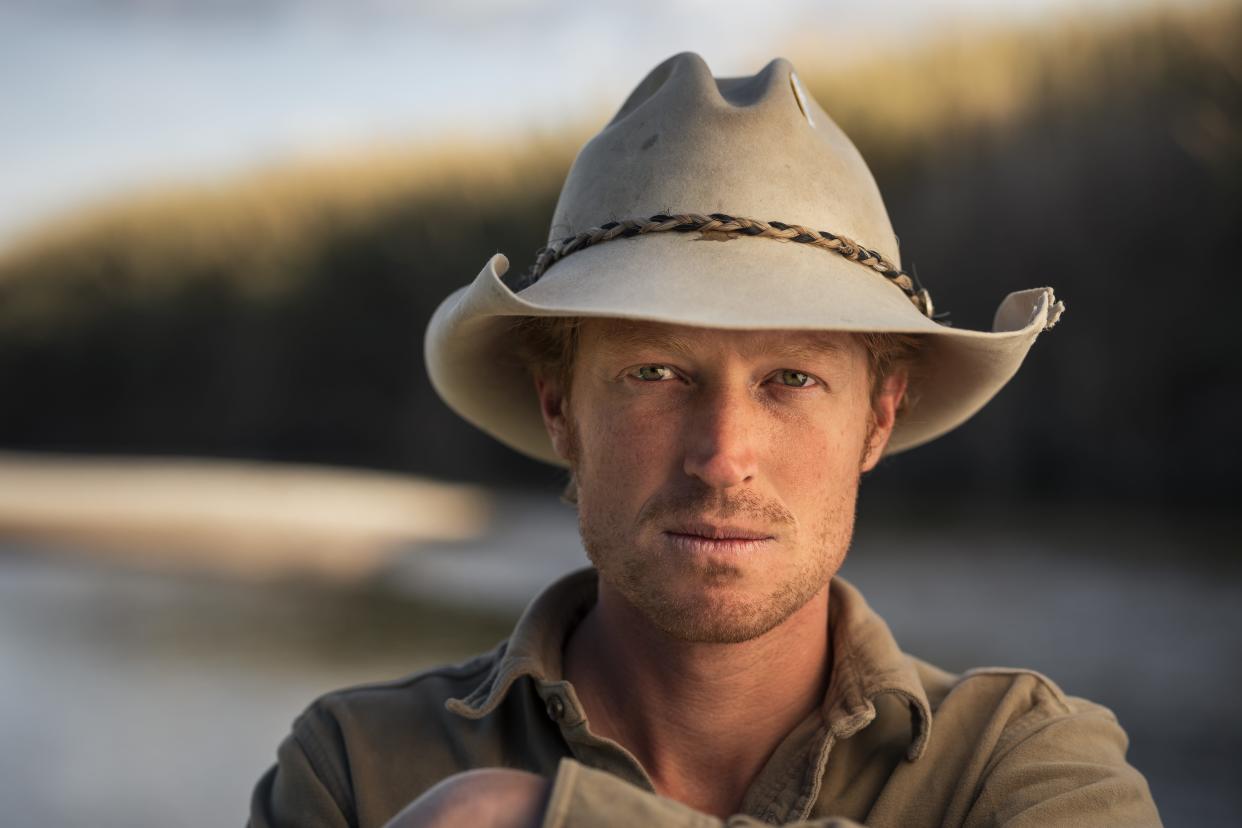
- Oops!Something went wrong.Please try again later.
If you like nature documentaries, you might have daydreamed that the producers of "Planet Earth" — with its astonishing science and breathtaking photography — devoted a series just to Texas.
That's exactly what Austin-based filmmaker Ben Masters is doing with his long- and short-form nature docs that often double as rousing tales of adventure.
His features include "Deep in the Heart," which captures a broad range of Texas' natural treasures and is narrated by Matthew McConaughey; "Unbranded," which earned multiple festival awards for its trail ride with wild horses in the West; and "The River and the Wall," a South by Southwest Film Festival winner that changed the way that people talk about how physical barriers, raised to repel people along the Rio Grande, might affect the natural world in the borderlands.
In addition, Masters has produced three books and 14 short nature docs on subjects from ocelot holdouts in South Texas to the revival of pronghorns and bears in West Texas.
Recently, Masters, 35, took his rightful place in the public limelight through an alliance with the sustainability team at H-E-B, which backed a docu-series of five shorts, branded "Our Texas, Our Future." They are available to stream for free at ourtexasourfuture.com.
Seen on the big screen during a premiere at Alamo Drafthouse Cinema Mueller, these films should be considered masterpieces in miniature.
I caught up with the moviemaker at his Fin & Fur Films studios located inside a modest midcentury rental house in South Austin.
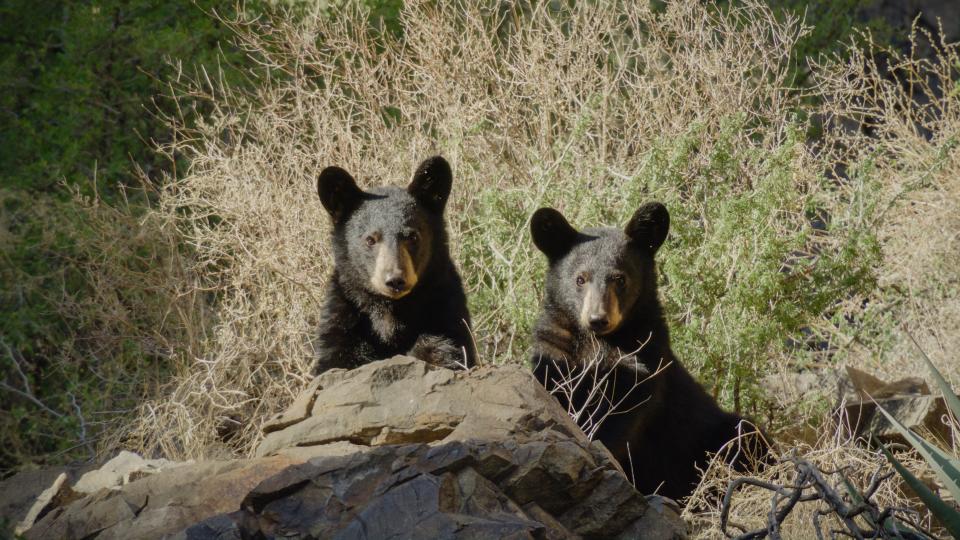
The making of an outdoorsman
Masters was born and raised in the Panhandle city of Amarillo. He comes from a long line of farmers and ranchers. His father also sold home mortgages while his mother raised four children.
While he was a teen, Masters' family moved to San Angelo, where he attended Central High School. There, he became interested in the scientific aspects of nature, as he did later at Texas A&M University. He never lost his curiosity and awe about the ways the world works.
"The more you learn," he says, "the more you learn how much you don't know."
During Masters' youth, his father taught him to hunt and fish.
"We didn't go camping, but we slept outside a lot," he says. "We hunted deer to eat and feral hogs, who tore up the land. Ducks, geese, quail."
He guided horseback pack trips into the mountains. Any activity, as long as he was outside.
"I liked to work hard," he says. "I worked on ranches and in feed yards and on farms. I trained horses while I was at A&M." Masters still keeps five horses in a pasture 45 miles west of Austin.
"I lived on the land very much as a participant in the landscape," he says.
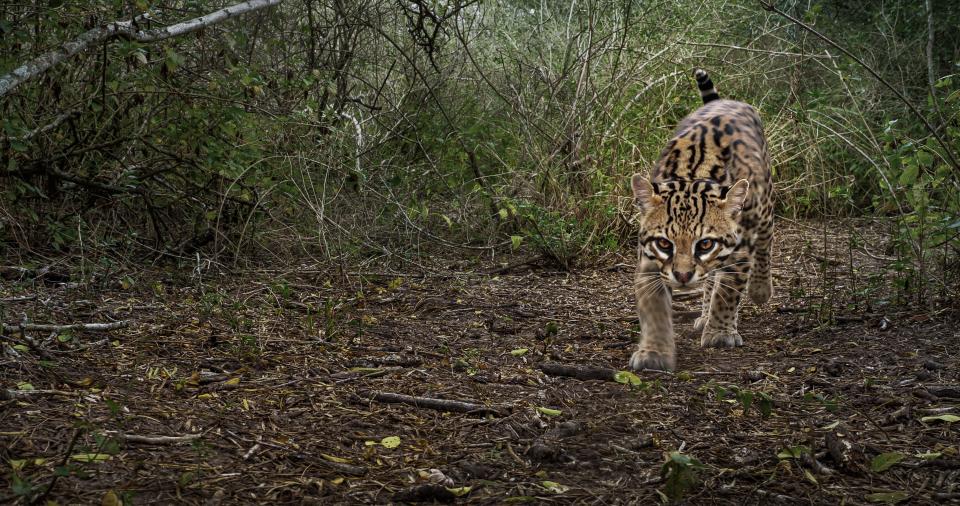
Epiphany on the Continental Divide Trail
One particular adventure launched Masters into his unusual career. At age 21, he took a semester off from Texas A&M to ride the Continental Divide Trail, which stretches some 3,100 miles between the borders of Mexico and Canada through New Mexico, Colorado, Wyoming, Montana and Idaho.
"I wanted to see the American West," Masters says. "Two friends and I broke wild horses that I adopted, trained and rode on the trail. Five months with no other work rewired things for me. As the landscape unfolded, I could see how much of the West had been developed and much was still vast and untouched. I liked that part a hell of a lot more than the paved."
Back at A&M, Masters transferred from the business school to study of wildlife biology.
"I had an epiphany," he says. "Best decision I ever made."
After working on oil rigs to pay off student debt, he decided to do another cross country ride across the West. This time, he brought along camera equipment and an established filmmaker, Phillip Baribeau, to act as director. The four men seen onscreen, including Masters, take 16 wild horses on the 3,000-mile pack trip.
That exploit became the 2015 movie, "Unbranded," which established Masters as a creator and producer of feature-length documentaries.
Masters returned to the themes of wilderness and development in the 2019 movie, "The River and the Wall," which documented his team's journey by land and by water down the Rio Grande.
"There was so much talk of building a wall from sea to shining sea," Masters says. "A lot of those statements were about a symbolic wall. Still, people want that wall. I wanted to show what the Texas-Mexico border actually looks like."
Masters was concerned how a wall would affect wildlife on public lands as well as international relations with Mexico. The movie's journey showed mountains, deserts, canyons, rivers and lakes on what often looks like a No Man's Land.
"It's hard to quantify how big an impact a wall would have," Masters says. "I tried to be as respectful as possible about different perspectives, including those who want to keep out immigrants. But it doesn't make sense if there's already a 2,000-foot cliff there."
The most eye-opening incident came when Masters was separated from the rest of his team and ran into some people crossing the border at night.
"If you are looking directly in their faces, it's no longer just a news story," he says. "You see the desperation and the resolve. You see it as a humanitarian problem. I tend to stay in my lane (as a nature movie-maker), but the experience was a very human one."
His 2022 feature, "Deep in the Heart," was constructed in part by combining the knowledge he learned from his previous short nature films, some of them commissioned by Texas conservation groups.
"What I always wanted to do is to go in the wild and make films," Masters says. "I found that Texans would love it if we did a 'Planet Earth' movie that shows the state's different eco-regions. It blows my mind that nobody was doing this before."
For those readers who don't travel extensively across the state, or who stick to the interstates, "Deep in the Heart" illustrates the profound diversity of landscapes and wildlife in Texas.
"Texas has all this, as well as Texans who care about Texas," Masters says. "I'm really proud of that film. It's better than I anticipated. We had sent Matthew's agent a rough cut. He said: 'Absolutely. This is cool. Let's do it.'"
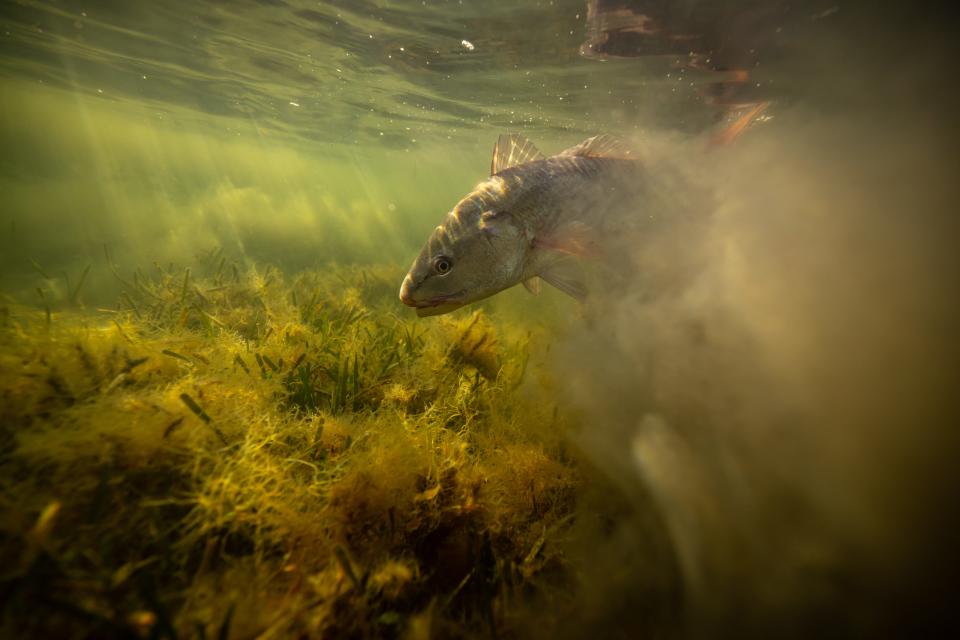
'How to take care of it': Making 'Our Texas, Our Future'
Leslie Lockett Sweet, managing director of sustainability and environmental affairs for H-E-B, was among those impressed by "Deep in the Heart."
“H-E-B has a deep commitment to support all Texans, and that includes helping to protect, conserve and beautify our great state for people to enjoy now and for generations to come,” Sweet says. She and her team decided to support "these passionate filmmakers and their mission to tell important stories that we hope will inspire people to celebrate and protect the diverse habitats, unique wildlife and beautiful landscapes across Texas.”
The fully funded H-E-B project meant that Masters could hire two other directors and more staff. Masters is quick to point out that filmmaking is a team sport, and was adamant to recognize that he gets to work with some of the finest filmmakers and humans in Texas.
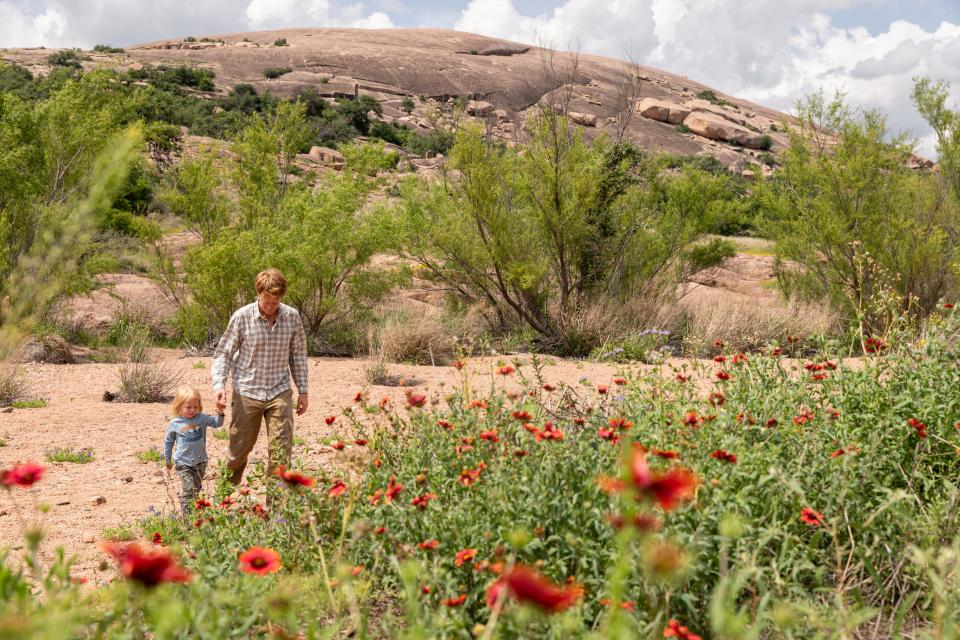
"I could make dozens — hundreds — of these films," Masters says. "And get to work with some the most talented, driven people in the business."
The five shorts in the "Our Texas, Our Future" series include these subjects: The state parks system, which celebrates its 100th anniversary this year; a duo of San Marcos scientists trying to figure out why bats are actively attracted to wind turbines; the successful campaign to bring back the Gulf redfish; the return of black bears to Texas; and a winning episode on ocelots, the medium-sized spotted wild cat that has all but disappeared from the state.
Using camera traps over the course of four winters at a South Texas ranch that has pledged to save ocelots, Masters has probably taken more footage of the shy animals than anyone alive. He set up 50 camera traps in a 10-acre tract.
"We wondered what ocelots actually do," he says. "The camera traps give you insight into what's actually going on in the woods. It's the magical gift of technology. I am now wealthy in ocelot knowledge and experience."
The team started filming a mom and two kittens the first winter, then later, one of those offspring had kittens of her own.
In West Texas, the team followed around a mother bear and her cubs, along with efforts to move one bear who became fond of people food, which could lead to unwanted bear-human contact. Along the Gulf Coast, they recounted the astounding history of redfish, once over-harvested to feed a culinary trend, then recovered by pausing the harvests and learning to breed and release them.
"There are a lot of successes happening in our lives and we are watching them unfold," Masters says. "There is only so much doom and gloom people can handle. There's been a cultural shift in Texas that everyone has recognized. We have these open landscapes and all these opportunities.
"We've proven our ability to conquer nature. Now we are trying to cultivate how to take care of it."
Michael Barnes writes about the people, places, culture and history of Austin and Texas. He can be reached at mbarnes@gannett.com. Sign up for the free weekly digital newsletter, Think, Texas, at statesman.com/newsletters, or at the newsletter page of your local USA Today Network paper.
This article originally appeared on Austin American-Statesman: Ben Masters makes masterpieces of Texas nature documentary films

